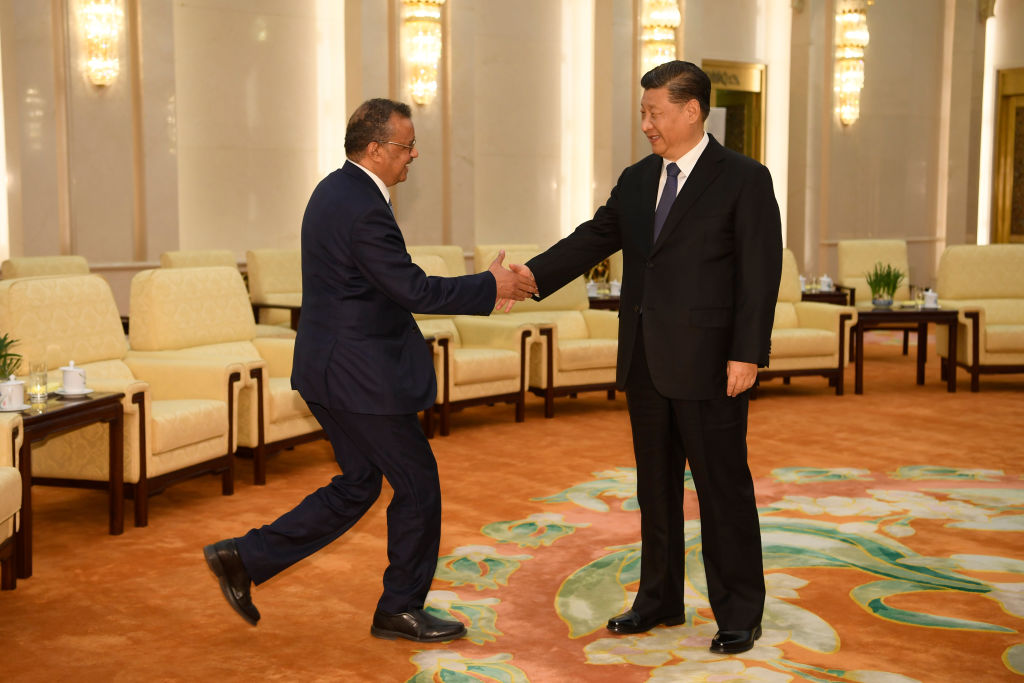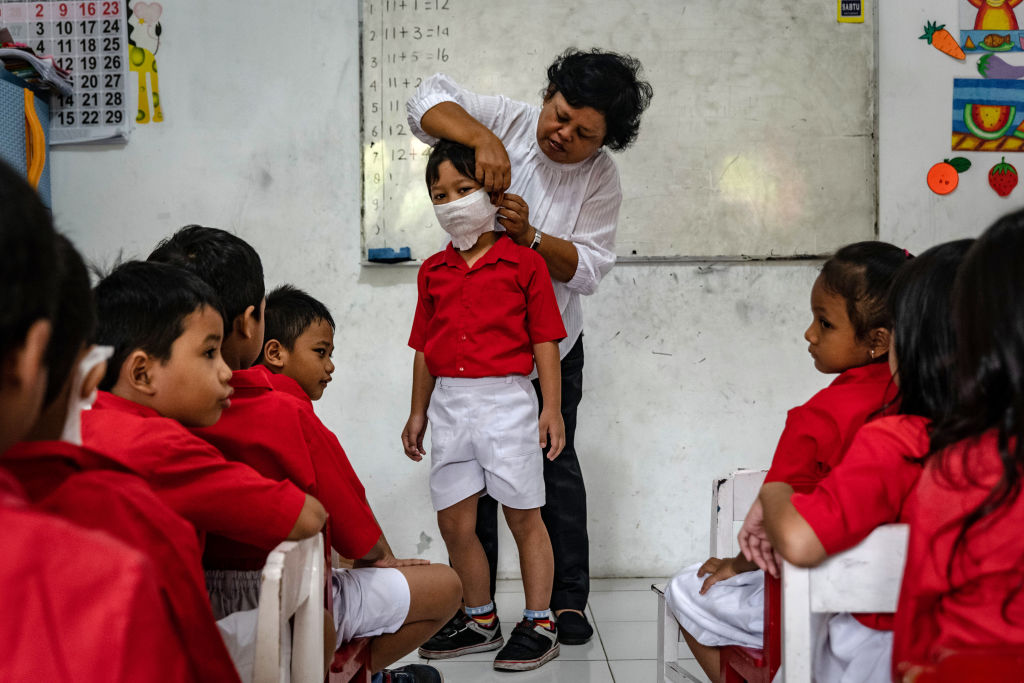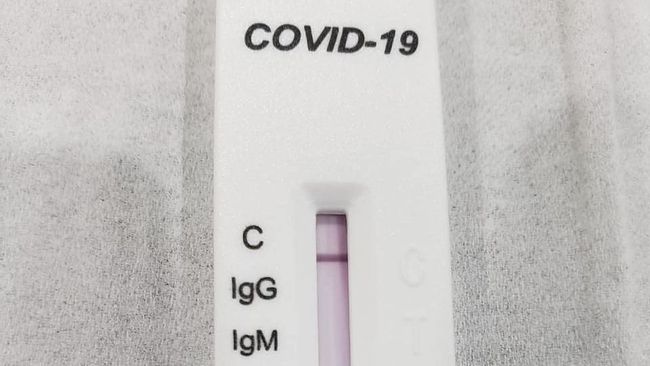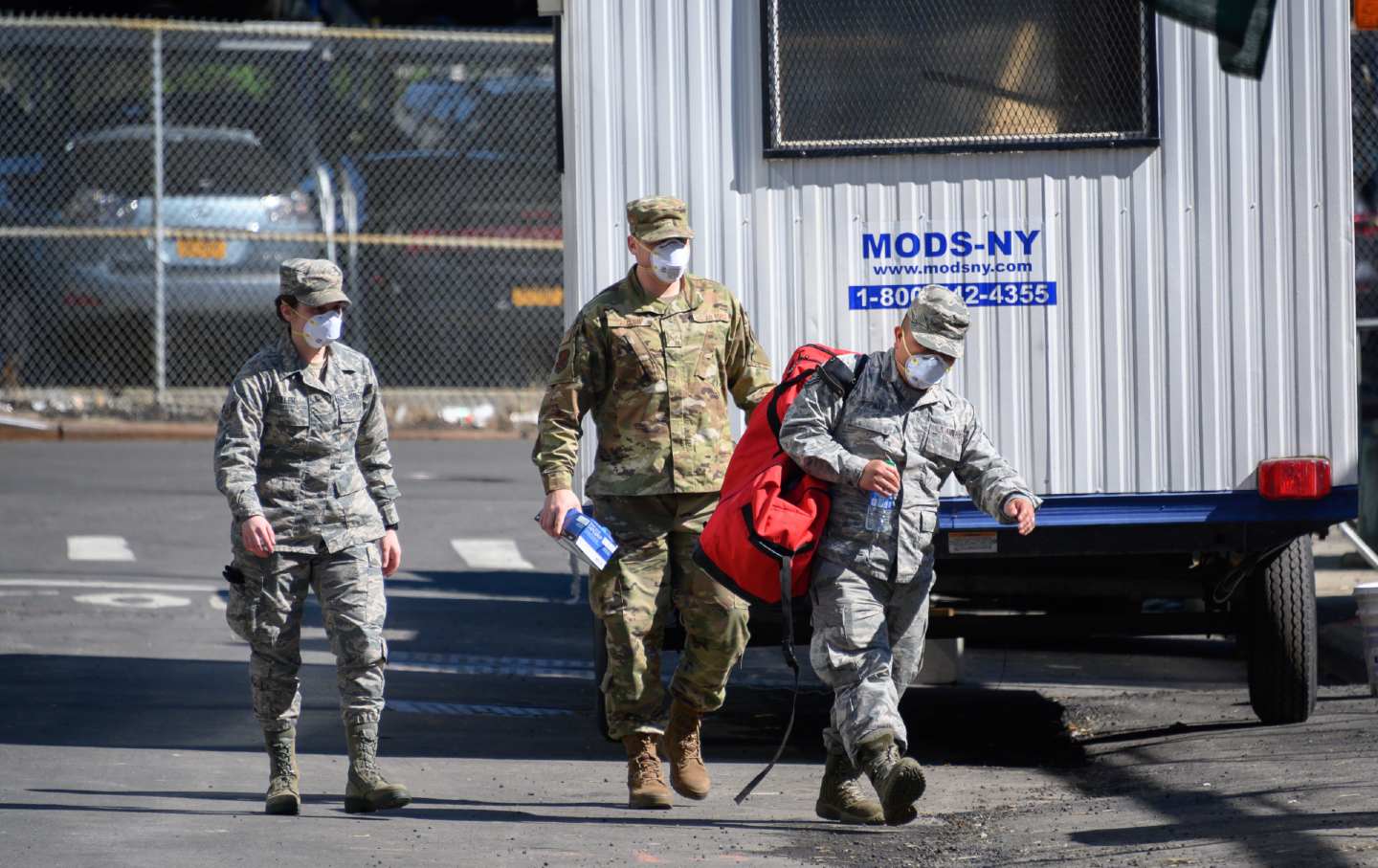@seaspear, your clarification is appreciated. I hope your posts going forward would have context, instead of just a link drop.
1. There were 884 deaths in the US in 24 hours, a new record, according to Johns Hopkins University (bringing the death toll to 3,873 deaths). The death toll in April, from the coronavirus pandemic in the US, is expected to more than double as there are 188,172 infected in the US.
2. Here is an interview with Dr. Anthony Fauci, a member of the White House coronavirus task force:
3. US DoD is worried about social unrest and predatory behavior, its leaders said in two press conferences on 24 March and 25 March. “This is affecting different countries differently, and it depends on the level of rigor and robustness of the medical facilities’ capacity inside each country,” says General Mark Milley, chairman of the Joint Chiefs of Staff on 24 March. “In some cases, it could lead to social breakdowns. It could lead to political chaos in certain countries. We have to be attuned to that.” The same problems hurting the USA could be even greater in other countries, he says. “It could be resource shortages. We see that with masks and gloves and ventilators and so on and so forth, hospital capacities and so on,” says Milley. “These can have severe internal consequences to certain countries that go well beyond the immediate medical issue.”
4. Secretary of defense Mark Esper said on 24 March that the DoD is cautiously watching how the coronavirus impacts foreign relations. “With allies, it may be incumbent upon us to help them with our own supplies, our own doctors, our own assistance,” he says. “With potential adversaries or adversaries, it may cause them to act out in different ways, and in ways that impact our security posture, our readiness. So we need to be very conscious and be on the lookout for that as this unfolds.” Some alleged bad behavior includes spreading false information and cybersecurity attacks. The Chinese foreign ministry suggested on 12 March that “it might be [the] US Army who brought the epidemic to Wuhan”.
5. In March, prominent health organizations, including the World Health Organization and US Health and Human Services Department (HHS), have been hit with sophisticated cyber-attacks. In the case of the HHS, a foreign state is the suspected attacker, reports Bloomberg.
6. Let me end this post with a positive note.
1. There were 884 deaths in the US in 24 hours, a new record, according to Johns Hopkins University (bringing the death toll to 3,873 deaths). The death toll in April, from the coronavirus pandemic in the US, is expected to more than double as there are 188,172 infected in the US.
2. Here is an interview with Dr. Anthony Fauci, a member of the White House coronavirus task force:
3. US DoD is worried about social unrest and predatory behavior, its leaders said in two press conferences on 24 March and 25 March. “This is affecting different countries differently, and it depends on the level of rigor and robustness of the medical facilities’ capacity inside each country,” says General Mark Milley, chairman of the Joint Chiefs of Staff on 24 March. “In some cases, it could lead to social breakdowns. It could lead to political chaos in certain countries. We have to be attuned to that.” The same problems hurting the USA could be even greater in other countries, he says. “It could be resource shortages. We see that with masks and gloves and ventilators and so on and so forth, hospital capacities and so on,” says Milley. “These can have severe internal consequences to certain countries that go well beyond the immediate medical issue.”
4. Secretary of defense Mark Esper said on 24 March that the DoD is cautiously watching how the coronavirus impacts foreign relations. “With allies, it may be incumbent upon us to help them with our own supplies, our own doctors, our own assistance,” he says. “With potential adversaries or adversaries, it may cause them to act out in different ways, and in ways that impact our security posture, our readiness. So we need to be very conscious and be on the lookout for that as this unfolds.” Some alleged bad behavior includes spreading false information and cybersecurity attacks. The Chinese foreign ministry suggested on 12 March that “it might be [the] US Army who brought the epidemic to Wuhan”.
5. In March, prominent health organizations, including the World Health Organization and US Health and Human Services Department (HHS), have been hit with sophisticated cyber-attacks. In the case of the HHS, a foreign state is the suspected attacker, reports Bloomberg.
6. Let me end this post with a positive note.
(i) Germany has activated her Intensive Care Unit (ICU) plane to help fellow European Union member, Italy cope with its skyrocketing cases of COVID-19. The plane landed in Bergamo, northern Italy, on 28 Mar 2020 and returned to Cologne, with six Italian patients, who will be treated at various hospitals in the region. Medical experts have described as the world’s best medevac for COVID patient, is an Airbus A310 MedEvac, that will be used to fly COVID-19 patients from Italy to hospitals in Germany. The Airbus A310 MedEvac has a capacity of 44 beds of which 16 are for high intensive care patients, and up to 25 medical staff.
(ii) Taiwan has pledged to donate 10m face masks to countries hit hardest by the coronavirus pandemic including EU member states and the US, in a move that highlights the geopolitical dimension of the pandemic. Taiwan's foreign ministry said 7m of the masks would go to the EU and particularly hard-hit EU member countries as well as the UK and Switzerland, a pledge more than three times the amount China promised the EU.
(iii) Singapore, a key pillar in Delhi’s Indo-Pacific vision, has donated 30,000 test kits and will supply more, officials said. “Thanked Benedict Cheong, CEO of Temasek Foundation Singapore, for donating 30,000 test kits for COVID 19, which have reached India. A great gesture from a close friend. More likely in the next few days even as Indian ramps up its own production,” tweeted India’s High Commissioner to the city state Jawed Ashraf.
(iv) A powerful long-lasting disinfectant is now being used to coat lift buttons in Singapore’s public housing estates. Called sdst, the disinfectant lasts for 90 days and does not need to be reapplied in that time. In a press statement on Thursday (Apr 2), Changi Airport Group’s (CAG) philanthropic arm, Changi Foundation, said it had donated 650 litres of the coating to all 16 town councils in Singapore. Bonding agents in the coating also allow it to adhere tightly to surfaces at a molecular level, so that it remains effective even with repeated scrubbing and cleaning. But Dr Teo Ho Pin, co-ordinating chairman of PAP Town Councils, also urged lift users not to press lift buttons with pointed objects such as keys, as hard objects could still scrape the coating off.
Last edited:




/data/photo/2020/03/30/5e81cf680f99b.jpg)




